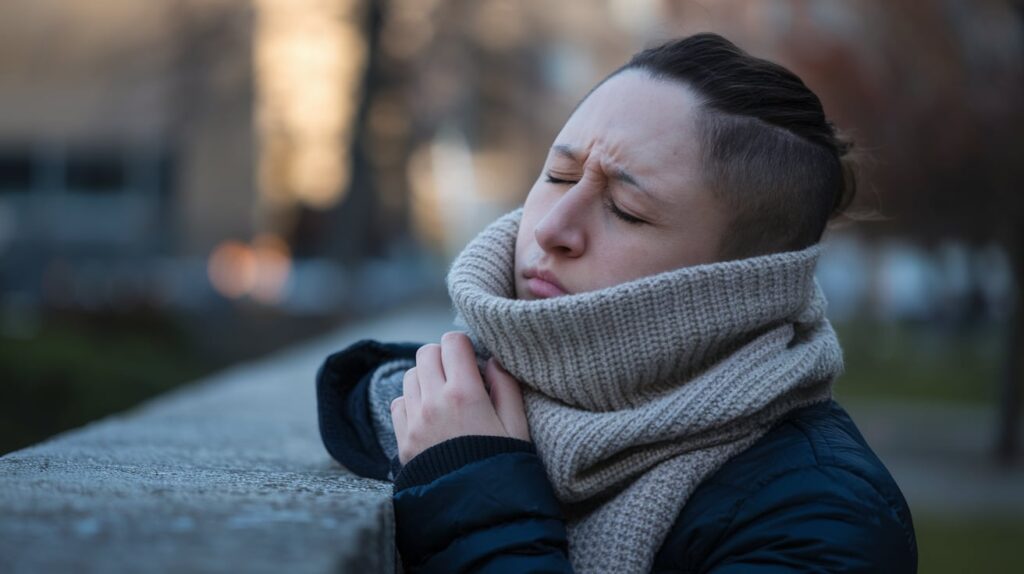What do you know about winter flu? You might have heard people talk about it, especially as the cooler months roll in. Understanding what is winter flu is essential, especially if you want to stay healthy during this chilly season. Let’s break it down together.
Understanding Winter Flu
Winter flu, commonly known as influenza, refers to a viral infection that spreads easily during the colder months. It’s not just a common cold; it’s a more severe respiratory illness caused by influenza viruses. You might notice an uptick in flu cases during winter, as people tend to gather indoors, making it easier for viruses to spread.
What Causes Winter Flu?
The flu is caused by the influenza virus, which comes in various strains. These strains can change from year to year, and this is why you often hear about the strain that’s particularly troubling, like H3N2 or H1N1. The two primary types of influenza that affect humans are:
- Influenza A: This type can cause pandemics and is responsible for most flu outbreaks. It affects many animals as well, which can also be a source of new strains for humans.
- Influenza B: While not as severe as type A, influenza B can still cause significant illness. It primarily affects humans and does not cause pandemics.
The virus spreads through droplets made when an infected person coughs, sneezes, or talks. Regular contact with surfaces contaminated with the virus can also lead to infection.

Symptoms of Winter Flu
Recognizing the symptoms of winter flu can help you take action early. You typically experience:
- Fever: A high temperature, often above 100°F (37.8°C), is common.
- Cough: A persistent cough that can be dry or produce mucus.
- Sore Throat: You might feel pain or scratchiness in your throat.
- Runny or Stuffy Nose: Nasal congestion can make it difficult to breathe comfortably.
- Body Aches: Muscle or joint pain often accompanies the flu.
- Fatigue: You may feel unusually tired or lethargic.
- Chills: Alternating between feeling hot and cold is common.
These symptoms usually appear suddenly and can last anywhere from a few days to a couple of weeks.
Flu vs. Cold: Understanding the Difference
It’s common to confuse winter flu with the common cold, but there are key differences. Here’s a quick comparison:
| Symptom | Winter Flu | Common Cold |
|---|---|---|
| Fever | Often high | Rarely |
| Onset | Sudden | Gradual |
| Aches | Severe | Mild |
| Fatigue | Extreme | Mild |
| Cough | Often severe | Mild to moderate |
Recognizing these differences can guide you toward the appropriate treatment and care.

Treating Winter Flu
When you or someone close to you catches winter flu, knowing how to treat it can make all the difference in speeding up recovery. Here are some key steps to consider:
Home Remedies
Home remedies can alleviate symptoms and help you feel better. Here are a few that might work for you:
- Stay Hydrated: Drinking an ample amount of water, herbal teas, or broths can help keep your throat moist and reduce discomfort.
- Rest: Your body needs extra energy to fight off the virus, so make sure to rest as much as possible.
- Warm Saltwater Gargle: Gargling with warm saltwater can soothe a sore throat.
- Honey and Ginger: A mixture of honey and ginger can ease coughs and sore throats.
Over-the-Counter Medications
You can also consider over-the-counter medications to relieve symptoms:
- Pain Relievers: Medications like acetaminophen or ibuprofen can reduce fever and alleviate body aches.
- Decongestants: These can help clear nasal congestion.
- Cough Syrups: Some cough syrups may help suppress coughs or loosen mucus.
Make sure to follow the recommended dosage, and consult a healthcare provider if you’re unsure.
When to See a Doctor
Most cases of winter flu can be managed at home, but there are times when you should seek medical attention. If you experience any of the following, reach out to a healthcare professional:
- Difficulty breathing or shortness of breath
- Chest pain or pressure
- Sudden dizziness or confusion
- Severe vomiting or dehydration
- Symptoms that improve but then return with a fever and worse cough

Preventing Winter Flu
Taking steps to prevent winter flu can keep you and your loved ones healthier during the colder months.
Vaccination
Getting vaccinated against the flu is one of the most effective ways to protect yourself. The flu vaccine is updated annually to combat the most common strains. The Centers for Disease Control and Prevention (CDC) recommends that everyone aged six months and older get the flu shot, especially those at higher risk, including young children, elderly individuals, and those with chronic health conditions.
Good Hygiene Practices
Emphasizing hygiene can help reduce your risk of catching or spreading the flu. Here are some practices to follow:
- Wash Hands Frequently: Use soap and water or hand sanitizer, especially after coughing, sneezing, or being in public places.
- Cover Your Mouth: When you cough or sneeze, use a tissue or your elbow, not your hands. This reduces the chance of spreading the virus.
- Avoid Close Contact: Keeping a reasonable distance from anyone who is sick can lower your risk of catching the flu.
Healthy Lifestyle Choices
A strong immune system can help ward off infections. Consider these lifestyle choices:
- Balanced Diet: Eating a variety of fruits, vegetables, whole grains, and protein can provide essential nutrients.
- Regular Exercise: Staying active can strengthen your immune system.
- Adequate Sleep: Aim for 7-9 hours of sleep each night, which helps your body recover and strengthen its defenses.
Complications from Winter Flu
Though many people recover from winter flu without complications, it’s important to be aware of potential risks, especially for vulnerable populations.
Potential Risks
Some complications from the flu can include:
- Pneumonia: A severe lung infection that can develop as a result of influenza.
- Bronchitis: Inflammation of the airways can occur, leading to a persistent cough.
- Sinus Infections: These can develop from a bacterial infection following the flu.
- Exacerbation of Chronic Conditions: Flu can worsen chronic illnesses like asthma or diabetes.
Understanding these risks can help you understand the importance of flu prevention and treatment.
Community Impact of Winter Flu
The flu doesn’t just affect individuals; it can have a broader impact on communities. During flu season, healthcare systems can become overwhelmed, leading to increased hospital visits and resource strain.
Vaccination Coverage
Community vaccination efforts play a vital role in minimizing the spread. When a higher percentage of the population gets vaccinated, it creates herd immunity, which protects even those who cannot get vaccinated—such as infants and those with severe allergies.
Public Awareness Campaigns
Public health campaigns are crucial for raising awareness about flu prevention, symptoms, and the importance of vaccination. Communities can benefit from understanding how to care for themselves and each other during flu season.
Economic Impact
Winter flu has economic repercussions, too. Illness can lead to increased absence from work and school, impacting productivity. Knowing how to prevent and treat the flu can thus have significant implications for both personal health and overall economic health in your community.

Conclusion: What Is Winter Flu
Now that you have a deeper understanding of winter flu, including its symptoms, treatment options, prevention strategies, and overall impact, you can navigate the chilly months with confidence. Remember to take care of yourself and your loved ones, and don’t hesitate to seek help if necessary.
Keeping informed is one of the best ways to stay healthy and enjoy the beauty of winter. Protecting your health during this season means you can savor warm drinks, cozy blankets, and festive gatherings without fear.

